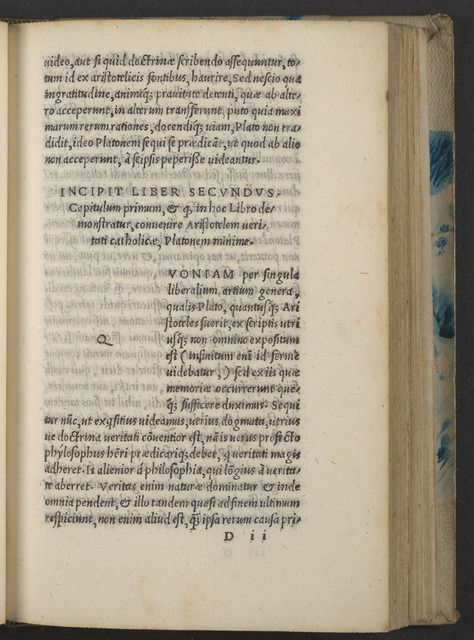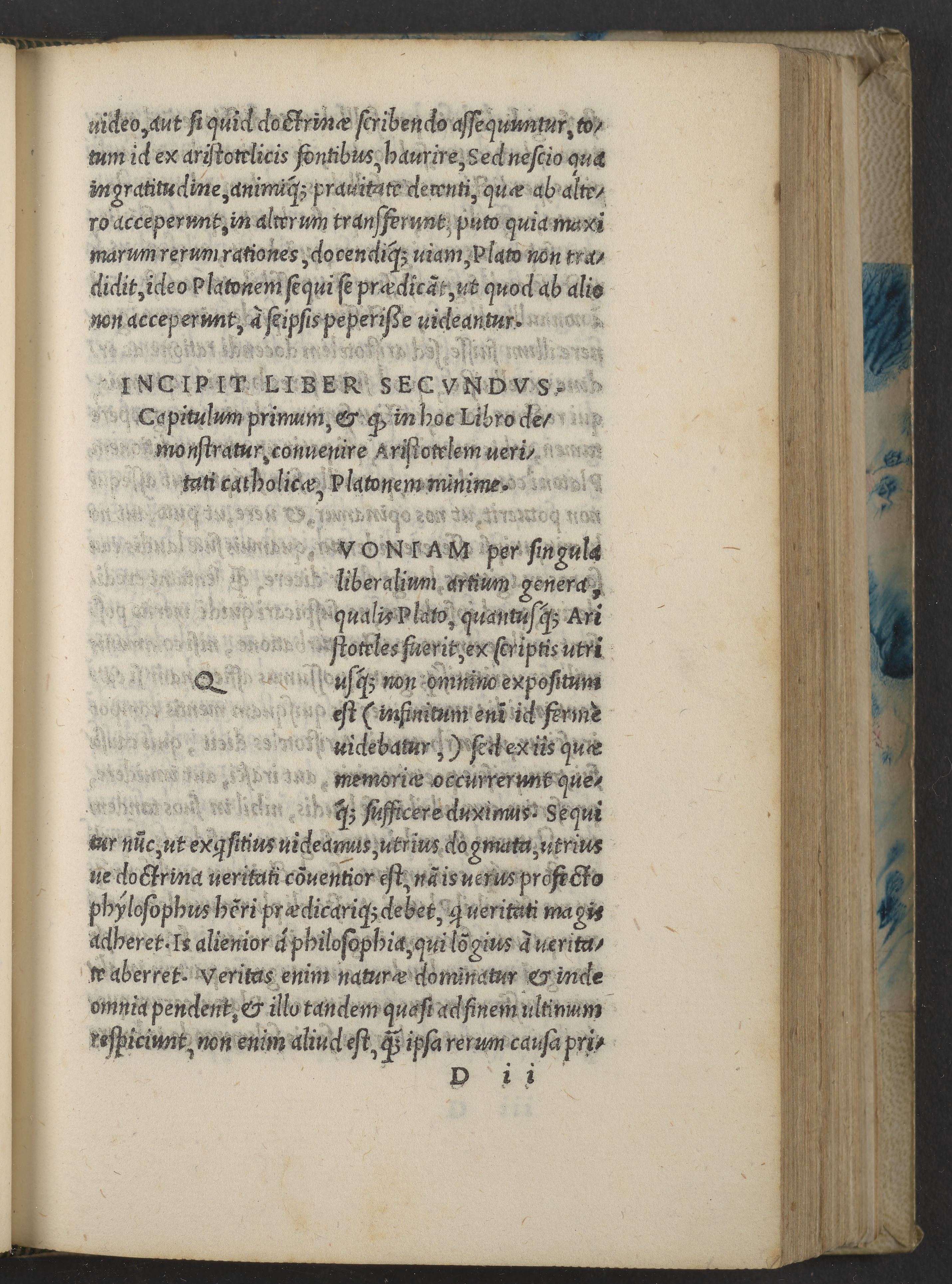XO23 Comparationes phylosophorum Aristotelis et Platonis a Georgio Trapezuntio viro clarissimo.

Full description
George of Trebizond, Comparationes phylosophorum Aristotelis et Platonis (Venice: Penzio de Leuco, [1523])
Penn Libraries, Kislak Center for Special Collections, Rare Books and Manuscripts, GrC Ar 466 S523g
Born in Crete, George of Trebizond (d. 1472) moved to Venice as a young man and became a renowned rhetorician and translator in the Roman Curia. He composed the Comparatio around 1457, but it was not until 1523 that the text was printed in Venice.
George of Trebizond adapted the ancient and Byzantine tradition of comparing Plato's respective merits against those of his student Aristotle, with the blatant intent of minimizing Plato's teachings in order to illustrate Aristotle's superiority. This was his revenge against fellow Greek Cardinal Bessarion, his former patron and friend, who was an advocate of Platonism and a student of Gemistos Plethon, who regarded Aristotle as impious.
Adopting an apocalyptic view, George of Trebizond suggests that Platonism would inflame the Latin world, as it had already caused the fall of the Byzantine Empire. He argues that Plato was ignorant and irreligious, while Aristotle was a pious man who, among other things, was aware of the Trinitarian dogma. George’s work was written in Latin, and had the potential to reach a widespread audience, thus compromising Plato's fragile prestige (translations of Plato’s works available then were often flawed). This provoked Bessarion to compose Against the Slanderer of Plato in response, which was printed in 1469 and effectively saved Plato's reputation in the Latin world. The Comparatio is divided into three books, in which George of Trebizond attacks Plato’s wisdom, his lack of usefulness for the Christian faith, and his personal virtue. In particular, the page on display (Diir) presents the incipit of Book II, wherein Trebizond declares that it is Aristotle, not Plato, who must be acknowledged as a support to Christian faith.
Raymona Singh
Comments
to view and add comments.
Annotations
No one has annotated a text with this resource yet.
- typeImage
- created on
- file formatjpg
- file size3 MB


